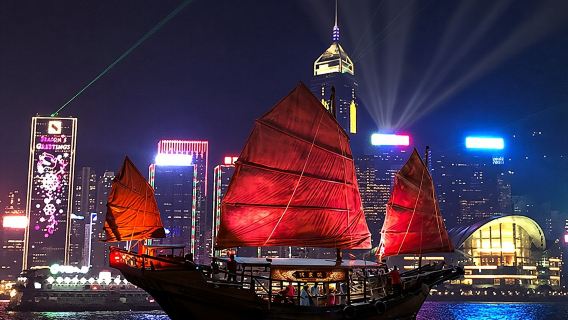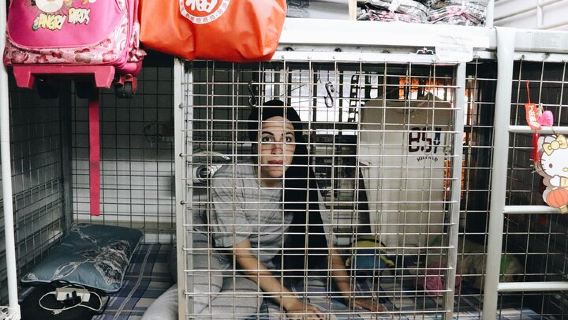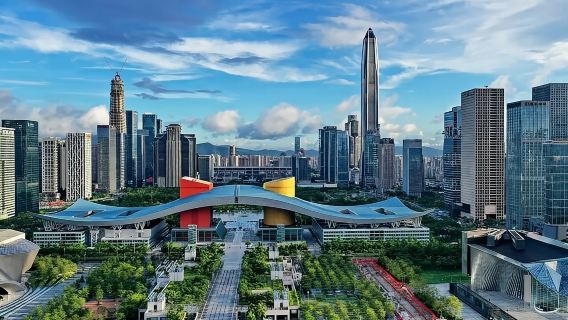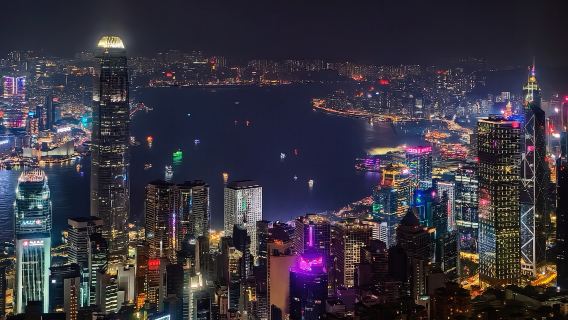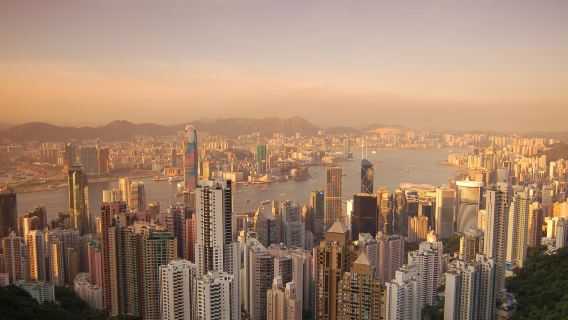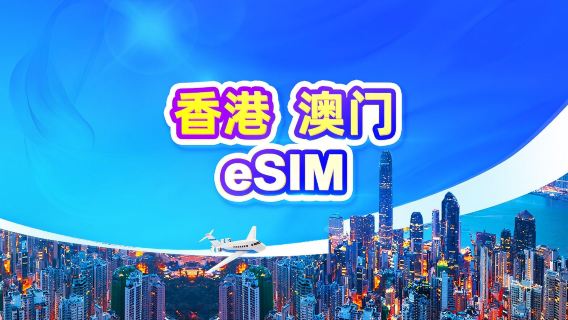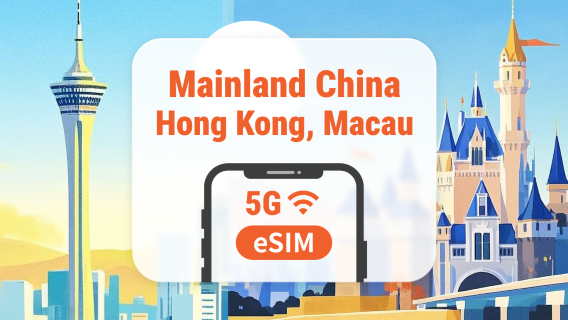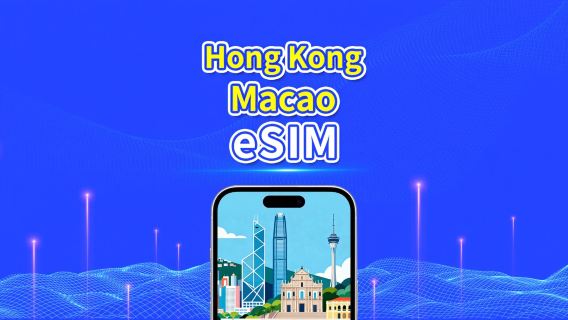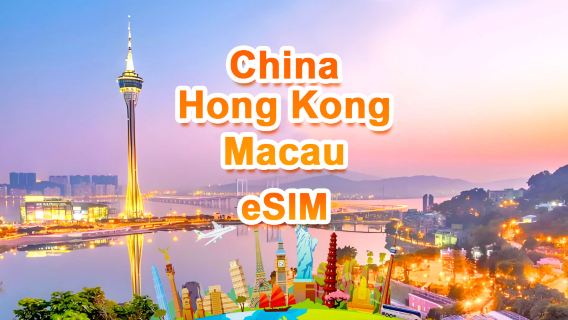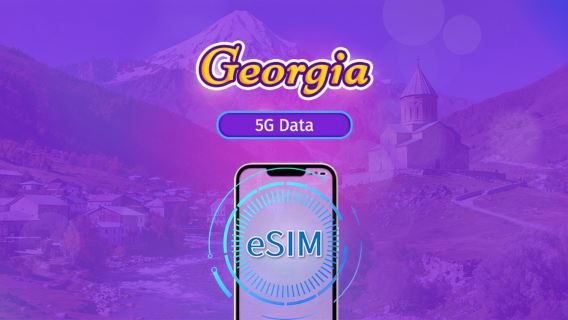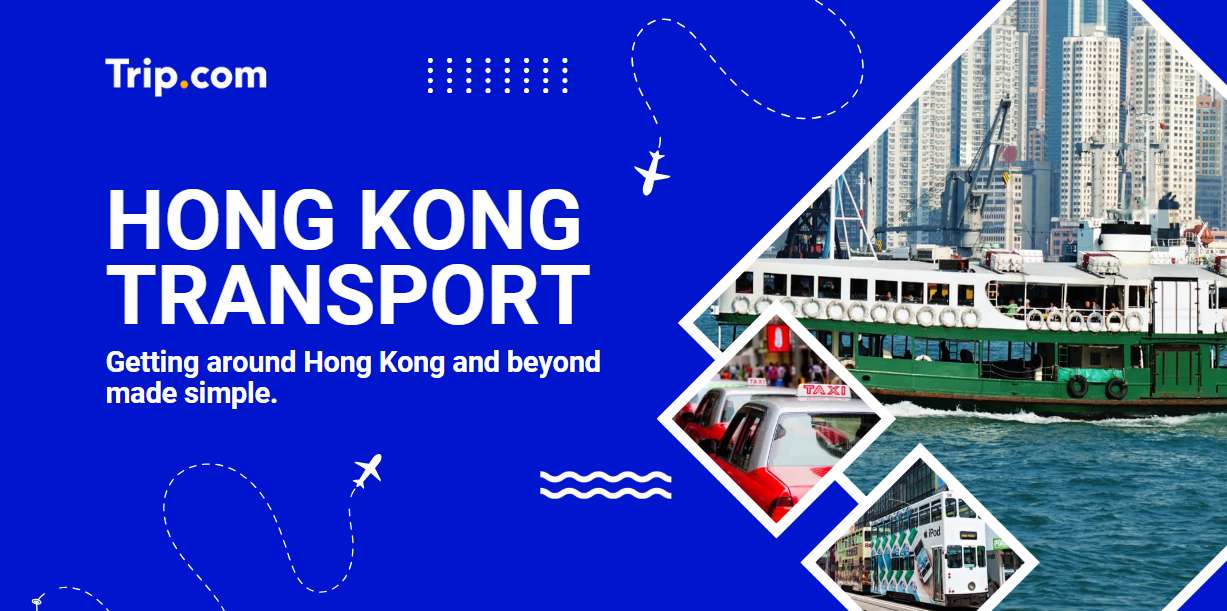
Are you a Filipino planning to visit Hong Kong soon? 🇵🇭✈️ Whether it's your first time or you're coming back for more adventures, one important thing to know is how to get around the city easily and affordably.
Good news—Hong Kong has one of the best transport systems in the world! From fast trains to scenic ferries, it’s clean, safe, and tourist-friendly. Most signs are in English, and getting from one place to another is quick and simple.
This guide is made especially for Filipino travellers. We'll walk you through the easiest ways to explore Hong Kong—from the airport to the city, and all the fun spots in between.
Let’s make your trip smooth and hassle-free!
✈️Hong Kong Airport Transfers
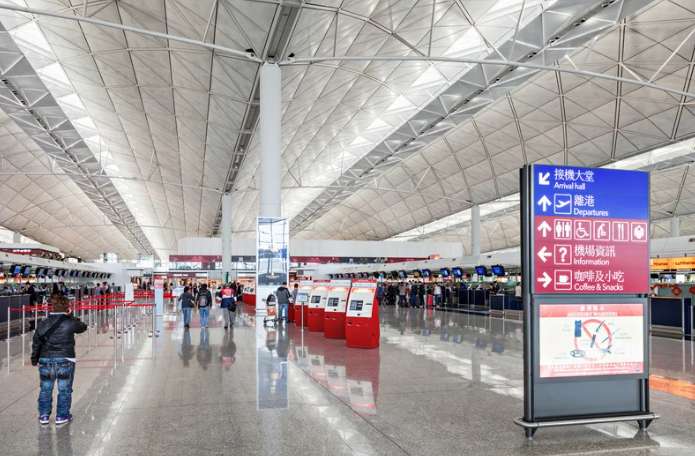
Once you land at Hong Kong International Airport (HKIA), the next step is getting to your hotel or destination in the city. Don’t worry—there are several transport options that are safe, easy, and tourist-friendly.
🚄 1. Airport Express Train
This is the fastest way to reach the city. In just 24 minutes, you can get from the airport to Hong Kong Station (Central). It’s clean, air-conditioned, and perfect if you have luggage.
- Fare: HKD 115 (one way)
- Stops: Tsing Yi, Kowloon, Hong Kong
- Bonus: Free shuttle bus from stations to major hotels
🚌 2. City Buses (A21, A11, etc.)
If you’re on a budget, this is a good choice. The airport buses stop at many key tourist areas like Mong Kok, Tsim Sha Tsui, and Causeway Bay.
- Fare: Around HKD 33–40
- Travel time: 45–70 minutes depending on traffic
- Luggage storage: Space available on the lower deck
🚖 3. Taxis
Great for groups, families, or late-night arrivals.
- Fare: Around HKD 250–350
- Colors: Red (urban), Green (New Territories), Blue (Lantau)
- Tip: Prepare your address in Chinese or use Google Translate.
🚇MTR (Mass Transit Railway)
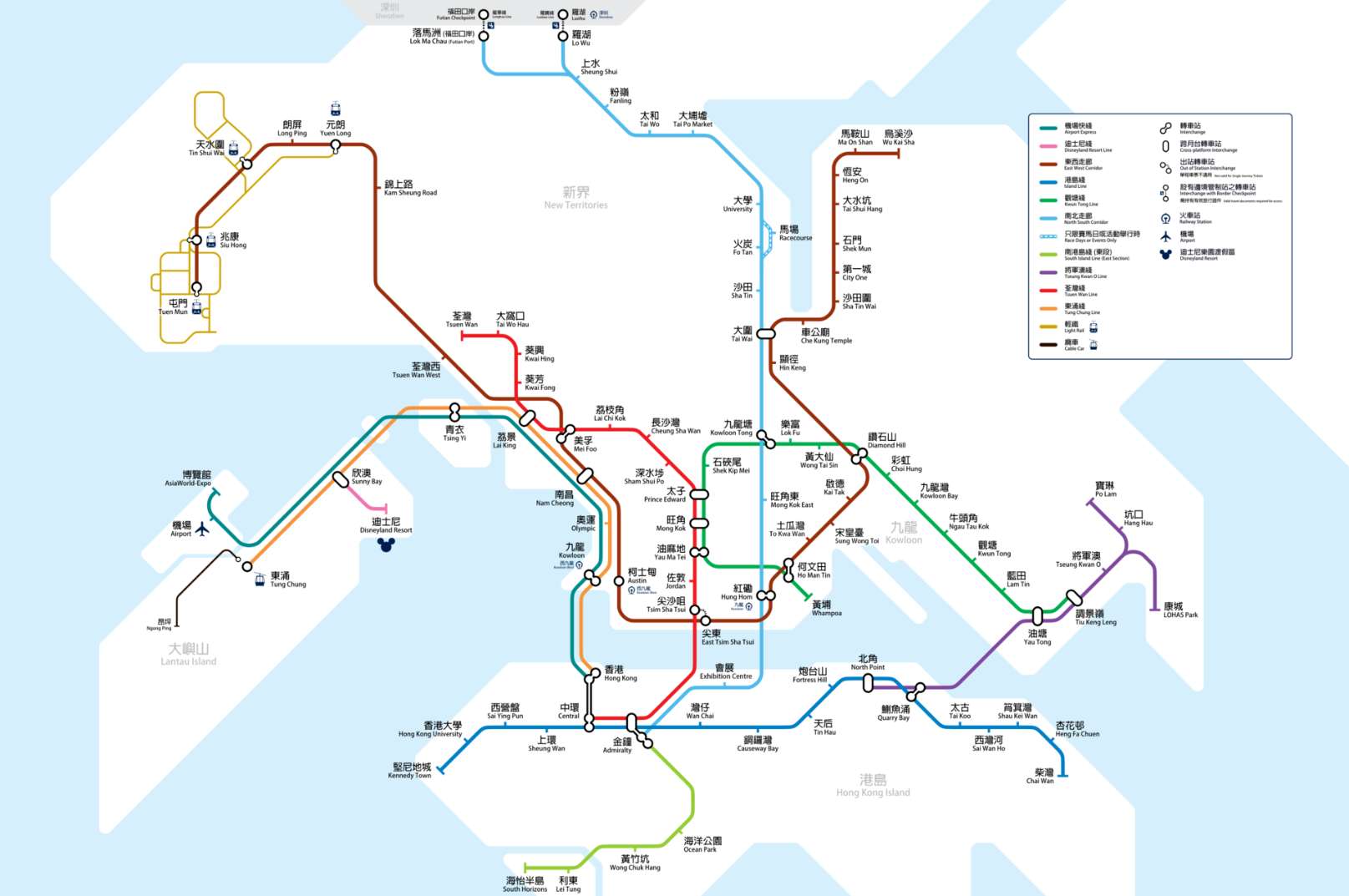
Source: Wikipedia
The MTR is Hong Kong’s fast and reliable subway system. It’s one of the easiest ways for Filipino travellers to get around because it covers most key areas including Kowloon, Hong Kong Island, the New Territories, and even connects directly to the airport.
📍Key Stops Filipino Travellers Should Know
- Central (business district and shopping)
- Tsim Sha Tsui (shopping, museums, harbor views)
- Mong Kok (markets and street food)
- Causeway Bay (shopping and entertainment)
- Airport (via Airport Express Line)
🕒Timings & Frequency
MTR (Mass Transit Railway) | |
| Operating Hours | 6:00 AM to 1:00 AM daily |
Frequency | Every 2-5 mins (peak hours), Every 5-8 mins (off-peak hours) |
Journey Time | Varies by route (e.g., Airport Express: 24 mins to Central) |
💸How to Ride?
- Use an Octopus Card for easy tap-in and tap-out.
- You can also buy single-journey tickets at the station.
- Download the MTR app or use Google Maps for route planning.
⚠️Watch-Outs
- Avoid rush hours (8-9 AM, 5-7 PM) if possible; trains get crowded.
- Keep an eye on your belongings—like in any busy metro.
- Some stations have many exits; double-check which exit leads to your destination.
🚌Buses
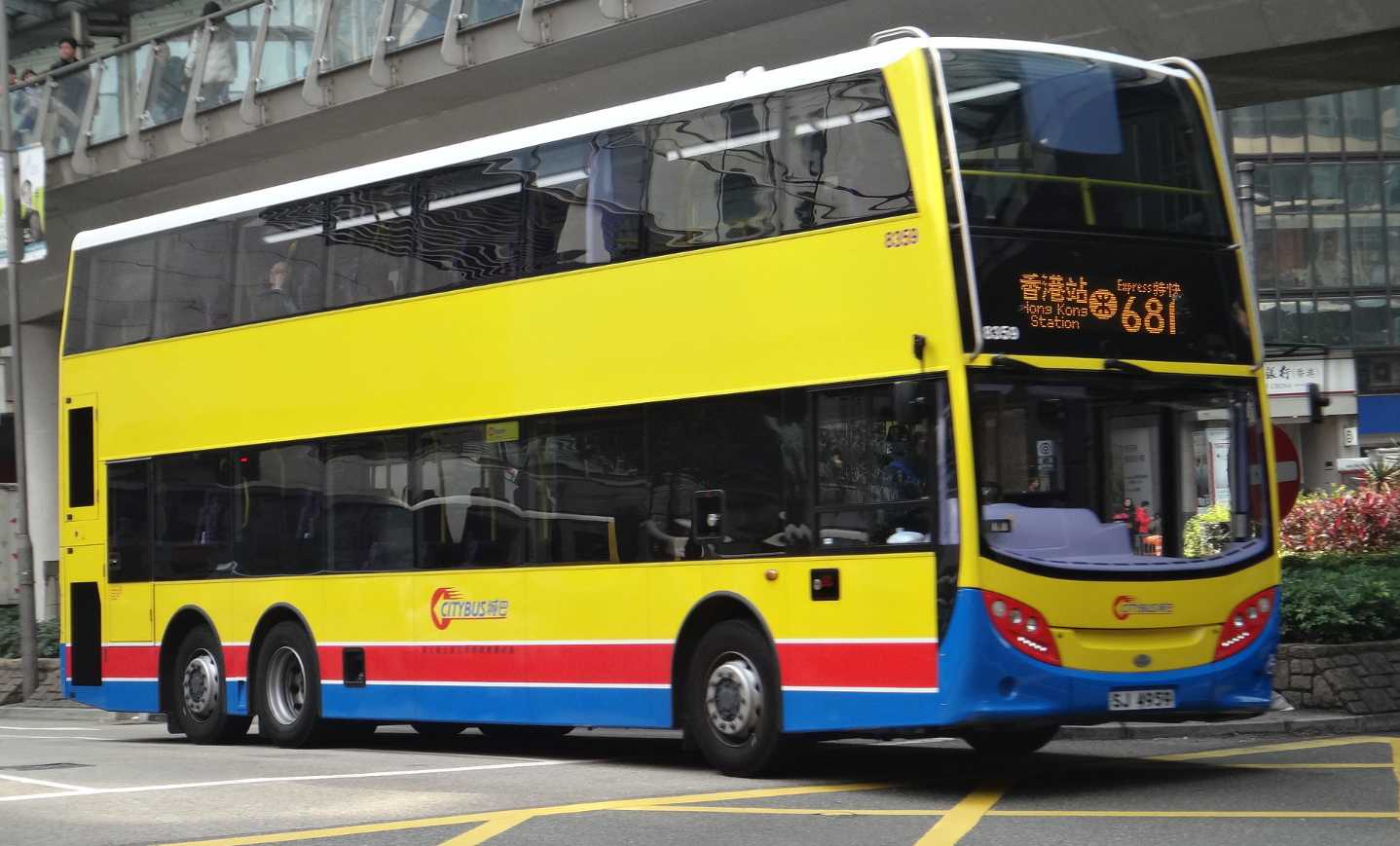
Source: Wikipedia
Hong Kong’s buses come in double-decker and single-decker types. They are run by companies like KMB, Citybus, and New World First Bus. Buses are perfect for reaching places the MTR doesn’t cover, including many suburban and scenic areas.
🕒 Timings & Frequency
Hong Kong Buses | |
| Operating Hours | Frequency |
Around 5:30 AM to midnight | Every 5-15 minutes during the day |
Some routes operate 24 hours | Less frequent during early morning and late night |
💳 How to Ride?
- Use your Octopus Card to tap when boarding and alighting—no need for exact change!
- You can also pay cash, but you must have exact fare (no change given).
- Bus stops have clear signs and route numbers in English.
⚠️ Tips
- Check the bus number and route beforehand using apps like Google Maps or Citybus/KMB apps.
- Buses can get crowded during rush hour (7–9 AM and 5–7 PM).
- Keep your belongings close—pickpocketing is rare but better to be safe.
Unmissable Experiences in Hong Kong
🚎Trams (Ding Ding)
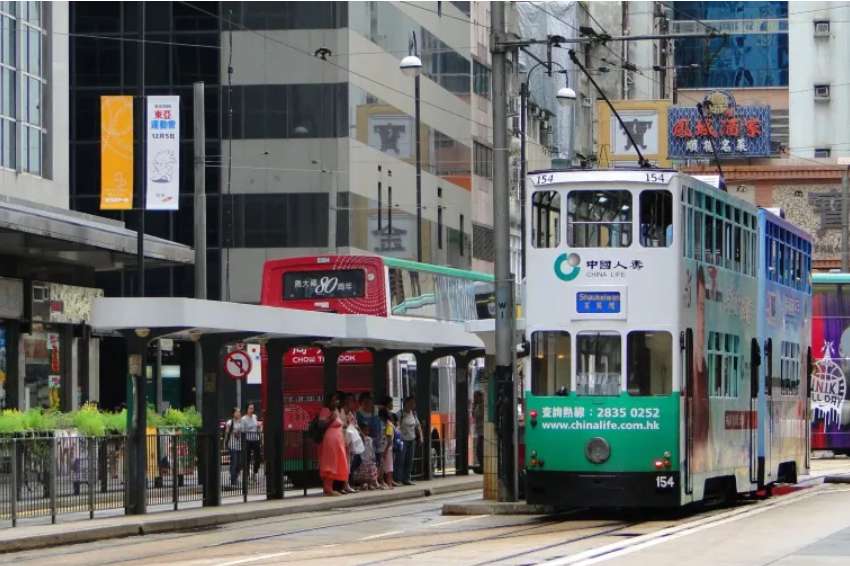
Hong Kong’s iconic double-decker trams, affectionately called “Ding Ding,” have been running since 1904. They offer a slow, scenic, and very affordable way to explore Central, Causeway Bay, and nearby areas on Hong Kong Island.
📍 Key Stops
- Western Market
- Central (Des Voeux Road)
- Causeway Bay
- Happy Valley (some routes)
🕒 Timings & Frequency
Hong Kong Trams (Ding Ding) | |
Operating Hours | 6:00 AM to midnight |
Frequency | Every 5-8 minutes |
Journey Time | Around 1 hour from end to end |
💸 How to Ride?
- Fares are a flat rate of HKD 3—pay cash when you board (exact change only).
- You can also use an Octopus Card by tapping when you board and when you get off.
- Trams don’t have stops like buses—just ring the bell to signal when you want to get off.
⚠️ Watch-Outs
- Trams are slow, so don’t use them if you’re in a hurry.
- They can get crowded during peak hours—stand firm and hold on tight!
- Always be careful when boarding and exiting, especially if you have luggage.
Top Hotel Picks for Your Stay in Hong Kong
🚐 Minibuses
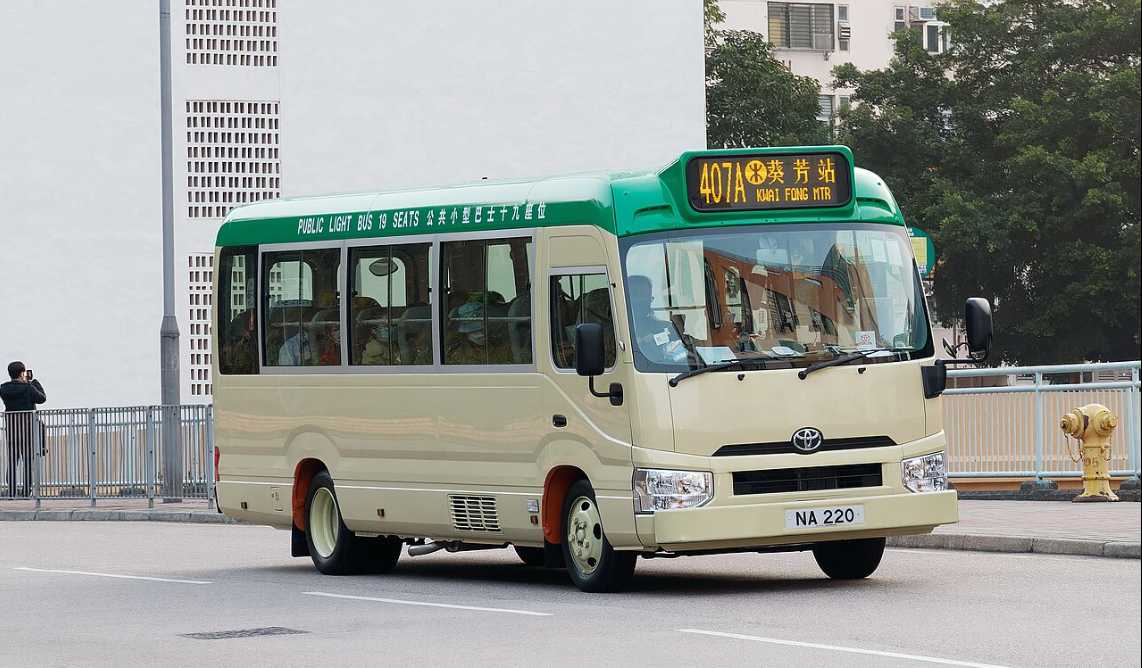
Source: Wikipedia
Hong Kong minibuses come in two types: Green and Red.
- Green minibuses have fixed routes, fixed fares, and set stops—making them easier for tourists to use.
- Red minibuses are more flexible with no fixed stops or schedules, so you need to know where to get off and sometimes negotiate the fare.
Minibuses are great for reaching places that buses and the MTR don’t go, especially remote or less accessible areas.
🕒 Timings & Frequency
Hong Kong Minibuses | |
Operating Hours | Frequency |
Green minibuses: 6:00 AM to midnight | Every 10–20 minutes |
Red minibuses: Varies by route | Runs mostly during the day and evening |
💳 How to Ride?
- For green minibuses, pay the exact fare in cash or use an Octopus Card.
- For red minibuses, always carry cash (exact fare) and tell the driver your destination.
- If unsure, ask locals or use apps like Google Maps to confirm your route.
⚠️ Tips
- Green minibuses are more tourist-friendly—choose these if it’s your first time.
- Red minibuses can be confusing, so avoid if you’re a beginner.
- Always carry small bills and exact change.
- Hold on tight, as minibuses can be fast and the ride bumpy!
Discover Unbeatable Flight Deals to Hong Kong
🚢 Ferries
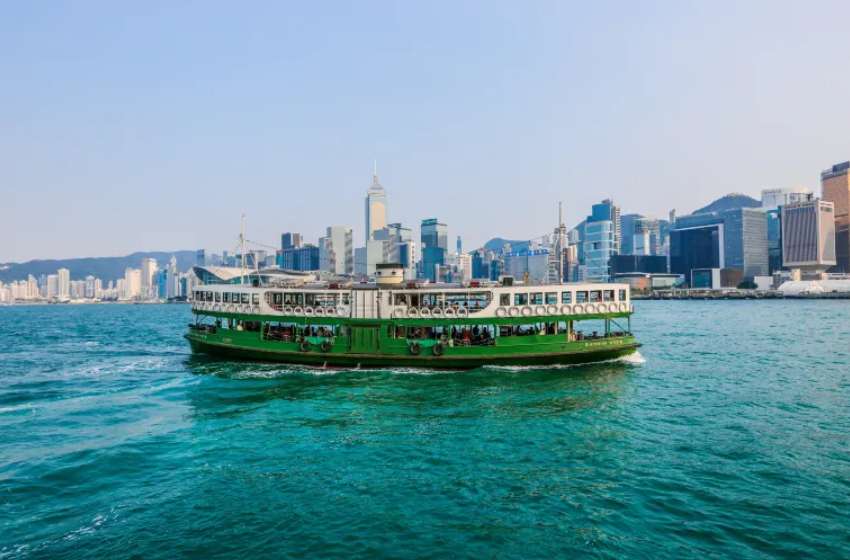
Ferries are a charming and relaxing way to travel in Hong Kong. The famous Star Ferry connects Kowloon and Hong Kong Island, offering beautiful views of the harbor at a very low cost.
Besides the Star Ferry, you can take ferries to the outlying islands like Lantau, Cheung Chau, and Lamma — great for day trips and exploring quieter, scenic spots.
🕒 Timings & Frequency
Hong Kong Ferries | |
Operating Hours | Frequency |
Star Ferry: 6:30 AM to midnight | Every 7-20 minutes (varies by route) |
Outlying Island Ferries: 7:00 AM to 7:00 PM (varies by island) | Several trips per day, check schedules |
💸 How to Ride?
- You can pay with Octopus Card or cash (exact fare needed).
- Tickets for outlying island ferries can be bought at the pier or online.
- Star Ferry fares are very cheap, around HKD 2.70–3.70.
⚠️ Tips
- Take the Star Ferry at sunset for amazing views of Hong Kong’s skyline.
- Check ferry schedules in advance, especially for outlying islands.
- Bring a light jacket — it can get windy on the water.
🚖Taxis
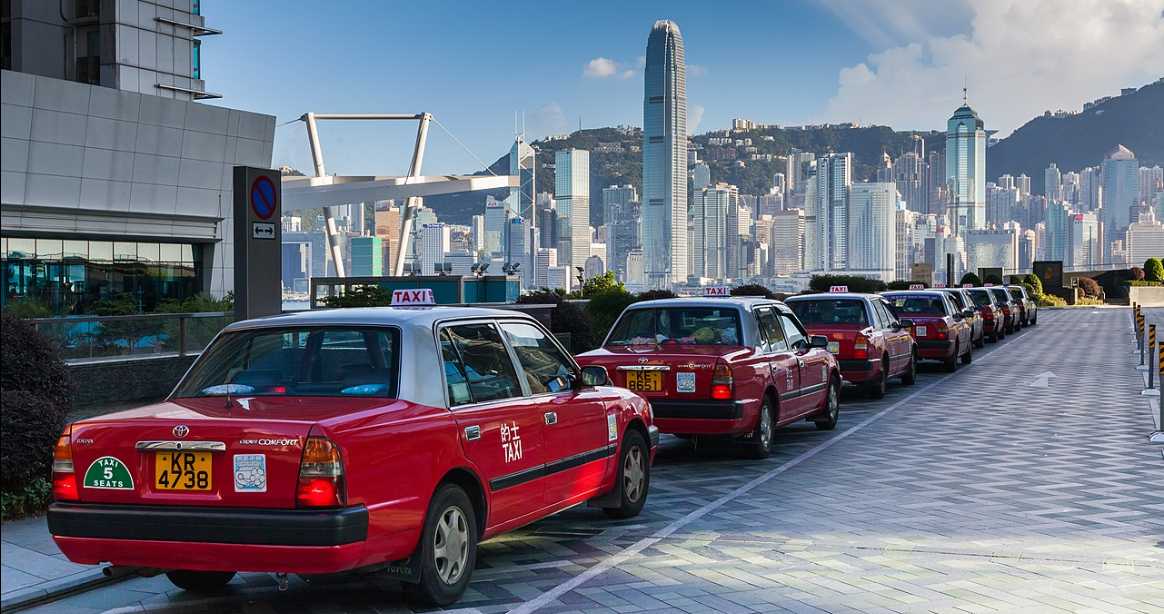
Source: Wikipedia
Hong Kong taxis come in three colors, each serving different areas:
- Red taxis operate mainly in urban areas like Hong Kong Island and Kowloon — the most common for tourists.
- Green taxis serve the New Territories.
- Blue taxis run on Lantau Island, including the airport and Disneyland areas.
Taxis are metered, reliable, and relatively affordable compared to other big cities, making them a good option for groups or when you’re in a hurry.
🕒 Timings & Frequency
Hong Kong Taxis | |
Operating Hours | Availability |
24 hours daily | Readily available in urban areas; less frequent in remote areas |
💳 How to Ride?
- Most taxis accept cash only—have small bills and coins ready.
- Some taxis now accept Octopus Card or contactless payments, but not all.
- Prepare your destination address in Chinese or show it on your phone for easy communication.
⚠️ Tips
- Always check the taxi has a working meter before starting the ride.
- Beware of traffic jams during peak hours, which may increase fare.
- Tipping is not required but rounding up the fare is appreciated.
Recommended eSIMs Options for Hong Kong
🚴♂️ Cycling in Hong Kong
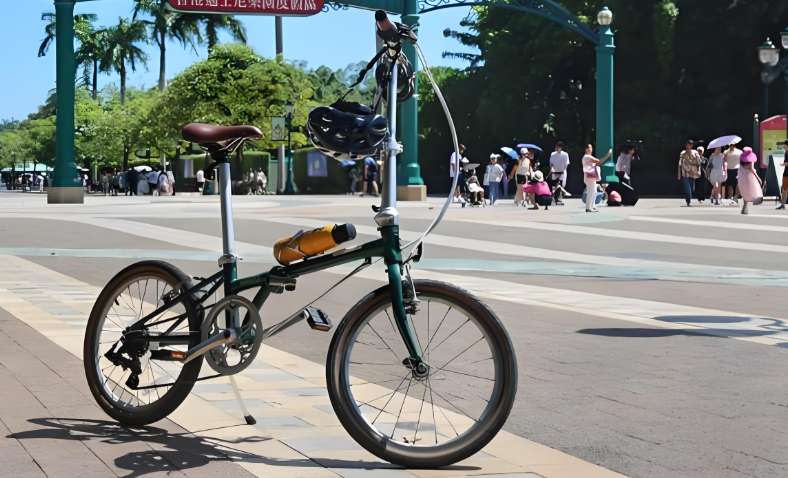
Cycling is a fun and relaxing way to explore the greener side of Hong Kong, especially in the New Territories. It’s perfect for a chill day with nature, local food stops, and scenic routes.
🚲 Where to Ride
- Tai Wai to Tai Po – Easy riverside path with bike rentals nearby
- Sha Tin to Ma On Shan – Family-friendly ride with parks and water views
- Tuen Mun to Yuen Long – Longer route through local towns and villages
- Cheung Chau Island – No cars allowed! Bikes are the main way to get around
⏰ Best Time to Cycle
- Morning or late afternoon (6:00 AM–10:00 AM or 4:00 PM–6:00 PM)
- Avoid midday in summer—it gets too hot and humid
- Weekdays are less crowded than weekends
💳 How to Rent
- Many parks and cycling spots have bike rental shops
- Rates: around HKD 70–100 for a full-day rental
- You’ll need a valid ID or small cash deposit
⚠️ Tips
- Stick to bike paths—don’t ride on highways or in the city center
- Bring water, a small towel, and sunscreen
- Wear a helmet (rental shops often provide one)
- Some routes are one-way; check if the shop allows returns at different locations
🚗 Private Cars / Ride-Hailing
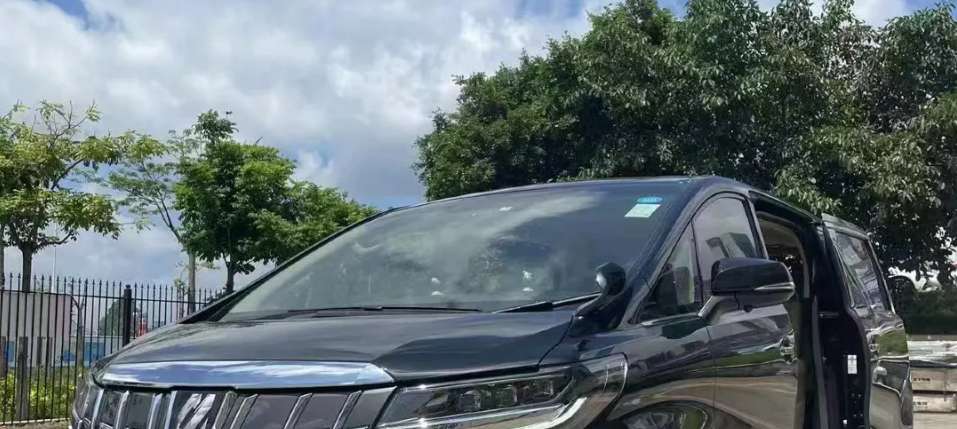
In Hong Kong, private cars and ride-hailing services are less common among tourists because of heavy traffic, limited parking, and the efficiency of public transport.
🚘 Uber & Other Apps
- Uber operates in Hong Kong, offering rides similar to taxis
- However, it’s not officially licensed, so availability may vary
- Prices are usually higher than taxis, especially during peak times
- No Grab or Angkas-like services here
🅿️ Why It’s Not Popular
❌ Expensive parking fees in urban areas
❌ Traffic congestion, especially in Central and Kowloon
✅ Can be convenient late at night or with large luggage
⚠️ Tips
- Double-check pickup spots—some areas restrict ride-hailing pickups
- Use the MTR or taxi unless you really need a private ride
- If using Uber, always compare with taxi rates to avoid overpaying
🚶♂️ Walking in Hong Kong
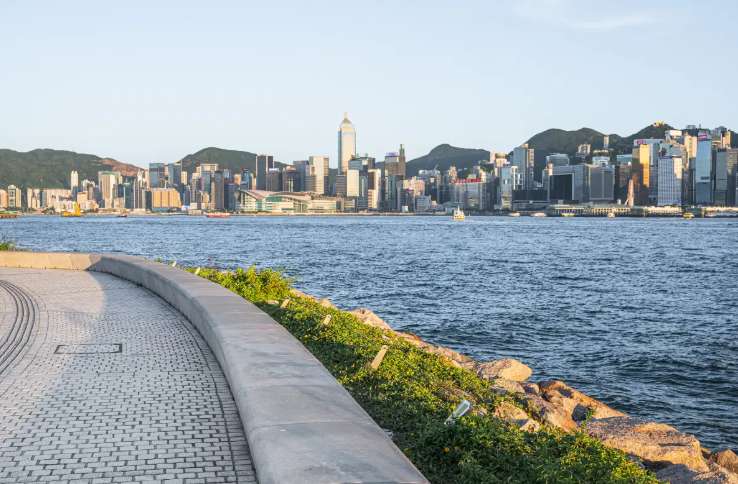
Hong Kong is one of the most walkable cities in Asia. With well-marked sidewalks, footbridges, and pedestrian zones, walking is an easy, healthy, and fun way to explore.
🛣️ Citywalk
Urban areas like Central, Tsim Sha Tsui, Causeway Bay, and Mong Kok are perfect for walking. You'll find shops, street food, local markets, and interesting alleyways to explore—no need for transport!
🌦️ Weather
- Best time to walk: October to March (cooler, drier months)
- In summer (June–August), it can get very hot and humid, so walk early morning or late afternoon.
- Always check the forecast; sudden rain is common. Bring a foldable umbrella!
📸 Scenic Walks
- Tsim Sha Tsui Promenade – Stunning harbor views and skyline
- Central to Mid-Levels Escalators – Longest outdoor covered escalator
- Peak Circle Walk – Easy trail with amazing views from Victoria Peak
- Dragon’s Back – A beginner-friendly hike with sea views
⚠️ Tips
- Wear comfortable walking shoes—expect stairs, slopes, and footbridges.
- Use Google Maps or Citymapper to plan your walk.
- Stay hydrated and wear sunscreen or a hat during the day.
- Avoid peak pedestrian hours (like MTR rush hour) to enjoy a smoother stroll.
💳 Octopus Card
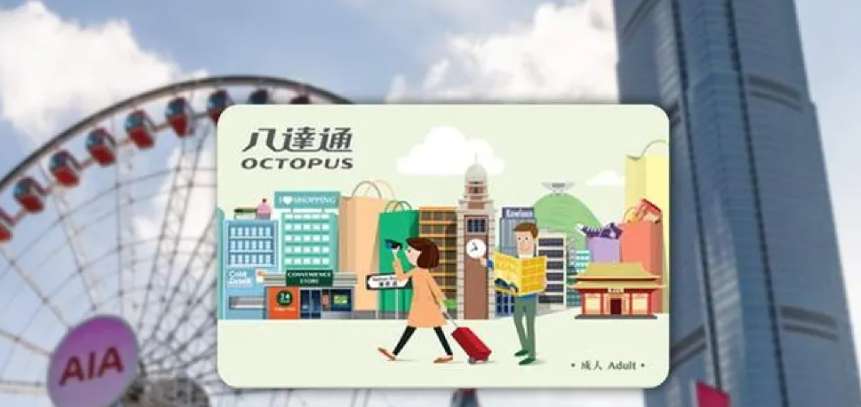
The Octopus Card is a must-have for getting around Hong Kong. It’s a reloadable smart card that makes riding public transport super easy—no need to carry coins or buy tickets each time.
🚍 Where Can You Use It?
✅ MTR (subway)
✅ Buses & Minibuses
✅ Trams (Ding Ding)
✅ Ferries (Star Ferry & others)
✅ Convenience stores, supermarkets, some fast food, vending machines
💵 How to Get One
- Buy at the airport, MTR stations, or convenience stores (like 7-Eleven)
- Costs around HKD 100–150 (includes refundable deposit and stored value)
🔄 How to Reload
- Reload at MTR stations, 7-Eleven, Circle K, or top-up machines
- Use cash or a credit card to reload
✅ Why You Need It
- Saves time and hassle
- Fares are slightly cheaper with Octopus than paying cash
- Works across multiple transport types—super convenient!
⚠️ Tip
Return your card before leaving Hong Kong to get back your deposit and remaining balance (at select MTR counters).
✅ Which Transport Option Is Best for You?
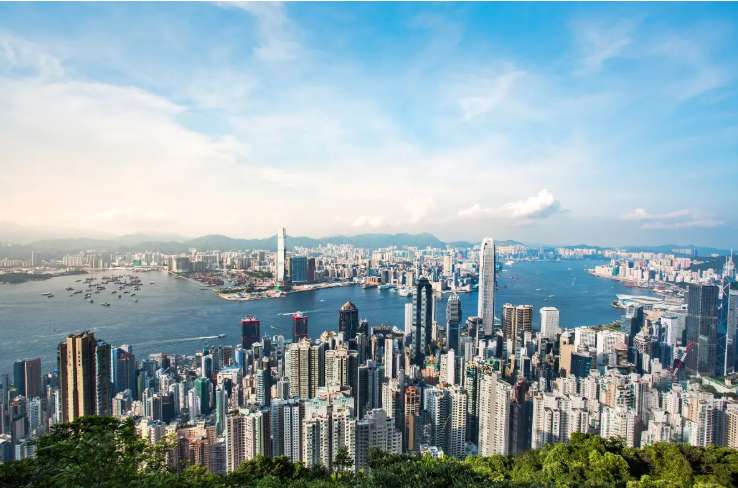
Choosing the right transport in Hong Kong depends on your budget, itinerary, and comfort level.
Hong Kong Transport | |
Your Travel Style | Best Option |
First-time tourist / sightseeing | 🚇 MTR – Fast, easy, and tourist-friendly |
Budget traveller | 🚇 MTR / 🚎 Trams / 🚢 Star Ferry – Cheap rides |
Exploring local neighborhoods | 🚌 Buses / 🚶 Walking – See more of local life |
Visiting remote areas / hidden spots | 🚐 Green Minibuses / 🚴 Cycling |
Traveling in a group or with luggage | 🚖 Taxi / 🚗 Car Rental (for rural trips) |
Scenic travel | 🚢 Ferries / 🚴 Bike routes |
Late-night transport | 🚖 Taxis or ride-hailing (limited MTR hours) |
No matter how you get around, Hong Kong is safe, tourist-friendly, and full of surprises. Explore at your own pace, take in the views, and enjoy every moment of your journey.
✈️ Handa ka na ba? Tara na, biyahe na sa Hong Kong!

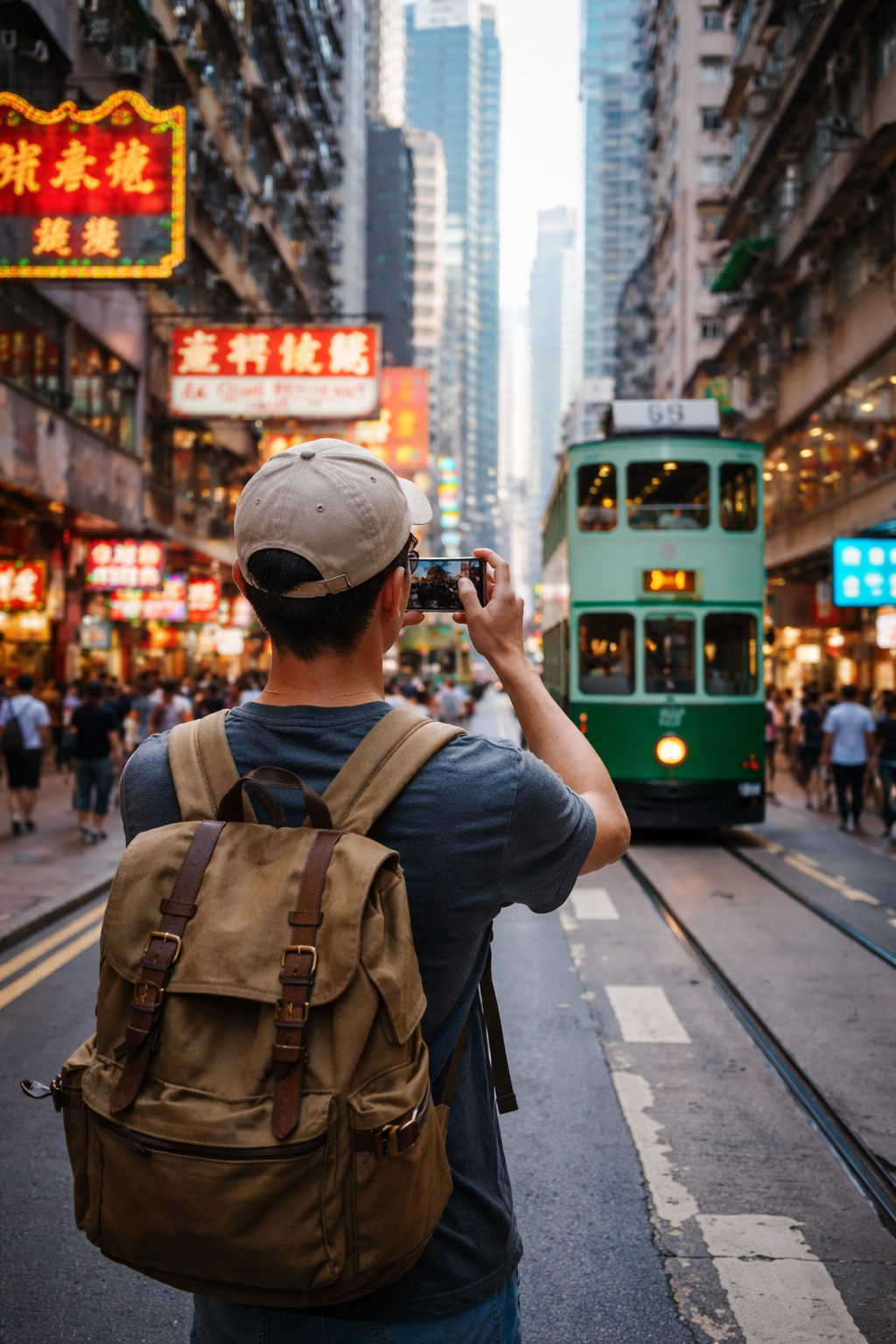
 114 booked
114 booked